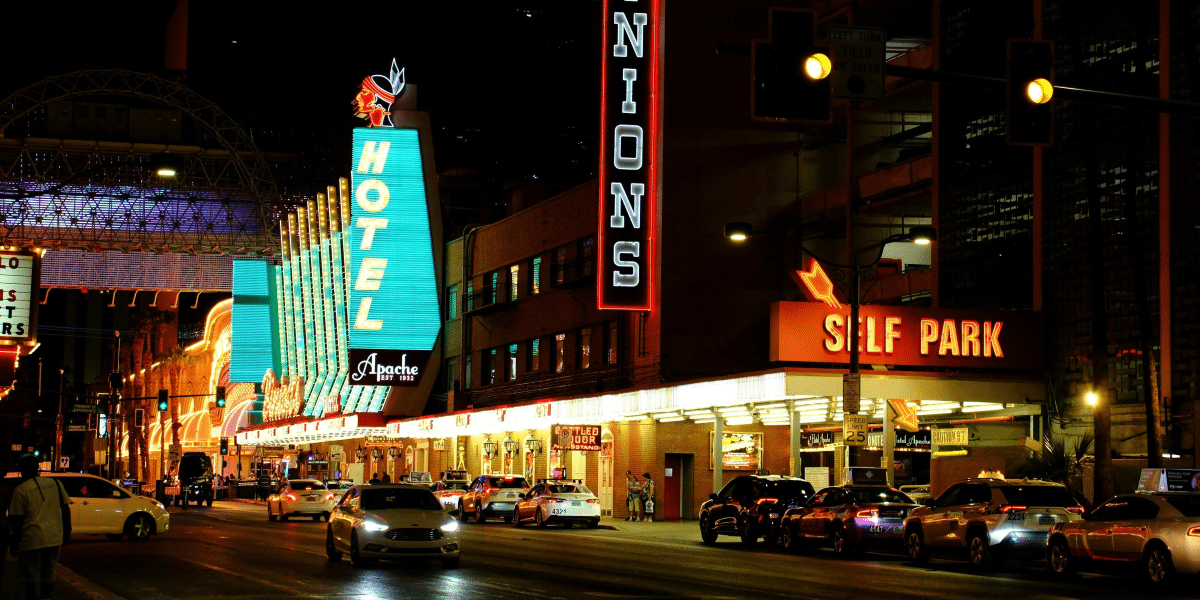When you’re on the Las Vegas Strip, it’s easy to get swept up in the excitement. But crowded casinos come with risks, from slippery floors to faulty equipment. If you’re injured, it’s helpful to understand your rights to seek fair compensation. This guide explains how casinos handle personal injury claims, outlining key steps to take and potential benefits of working with a personal injury lawyer in Las Vegas to ensure your claim receives careful attention from the start.
Common Causes of Personal Injuries in Las Vegas Casinos
Casinos on the Las Vegas Strip may encounter various injury risks due to large crowds, constant activity, and alcohol service. Some common risks include slip and falls from spills or freshly polished floors. Security incidents, such as assaults, can also lead to injuries. Malfunctioning casino equipment, like broken slot chairs, could pose hazards as well. Alcohol-related incidents, often linked to over-serving, sometimes result in accidents. Consulting with a personal injury lawyer in Las Vegas may provide support in investigating these incidents and identifying potential responsibility for fair compensation.
Legal Responsibilities of Casinos to Guests
Under Nevada law, casinos are required to keep their property safe for guests. This means they need to maintain safe environments and address any hazards. If a casino fails to meet this standard, it might be considered negligent in a personal injury claim. Premises liability laws are also applicable in Nevada, detailing circumstances in which a property owner, like a casino, could bear responsibility. A personal injury lawyer in Las Vegas can clarify how these rules might apply in complex cases.
Steps Casinos Take to Prevent Personal Injury Claims
Casinos make efforts to prevent personal injury claims. They may invest in security systems and train staff to handle emergencies quickly. Additionally, staff are trained to recognize and prevent potential hazards, such as slippery floors. Casinos often conduct routine safety inspections to check for faulty equipment or unsafe areas. Many Las Vegas casinos implement alcohol management protocols to reduce risks involving intoxicated guests. These measures aim to reduce the chances of claims and enhance guest safety on the Strip.
How Casinos Handle Personal Injury Claims Internally
When a casino injury occurs, staff follow a structured response. First, they prioritize providing the injured guest with medical attention and file an incident report. Casinos have insurance and claims departments that focus on handling injury claims. Casinos typically aim to settle claims without court involvement to avoid unwanted publicity and additional costs. In many cases, a personal injury lawyer in Las Vegas can work directly with casino representatives to pursue a fair resolution for the injured guest.
Legal Process for Injured Parties Filing Claims Against Casinos
After an injury at a Las Vegas casino, filing a report with the casino is essential to begin a claim. Gathering evidence, such as photos and witness information, may support the claim. Consulting a personal injury lawyer in Las Vegas can help clarify the legal process, from collecting medical records to pursuing a potential settlement. If the casino declines to offer a fair resolution, legal counsel may recommend considering a lawsuit to protect the claimant’s rights throughout the process.
Challenges Individuals Face When Suing a Casino
Suing a casino on the Las Vegas Strip can be challenging due to various legal and procedural hurdles that casinos are often prepared to manage. Casinos generally employ dedicated legal teams focused on protecting their interests. One frequent defense strategy may involve asserting that the injured party was partially or fully responsible for the incident. Casinos might claim the guest was intoxicated, distracted, or disregarded posted safety warnings, complicating the process of proving liability.
Another significant challenge is accessing key evidence, particularly surveillance footage. Casinos monitor their premises closely with high-definition security cameras but often control access to this footage, potentially making it difficult for claimants to gather necessary proof. A court order could be required to access this footage, especially if the casino argues its irrelevance to the incident. Nevada’s statute of limitations for personal injury claims is two years, meaning victims should act promptly. Delays in filing or insufficient evidence gathering may impact a case, as critical proof could become unavailable over time.
Working with a personal injury lawyer in Las Vegas can be beneficial in navigating Nevada’s legal complexities, countering casino defense strategies, and facilitating access to essential evidence like surveillance footage and witness testimonies. With the right legal assistance, individuals may have a stronger foundation to build a case that supports fair compensation.
Strategies for Pursuing a Casino Personal Injury Claim
Strengthening a claim against a casino often requires documentation, such as medical records and photos from the incident scene. Hiring an experienced personal injury lawyer in Las Vegas can assist in gathering this evidence and securing expert testimonies when needed. Achieving successful outcomes in such claims typically depends on proving negligence and employing sound negotiation tactics with the casino’s legal team. Many cases are resolved through negotiation, but experienced attorneys can advocate for trial when necessary.
Final Thoughts
Navigating a personal injury claim against a casino can be complex, but being informed about the process and seeking the right support can make a difference. If you’re injured in a Las Vegas casino, take immediate steps: report the incident, gather evidence, and consider consulting a personal injury lawyer in Las Vegas. Casinos often aim to address issues in-house, resolving claims efficiently when substantial evidence and legal representation are involved. By working with an experienced attorney, you may enhance the attention your case receives, ultimately improving the chances of fair compensation.
Disclaimer: “The content in this article is provided for general knowledge. It does not constitute legal advice, and readers should seek advice from qualified legal professionals regarding particular cases or situations.”
Published by: Annie P.
















